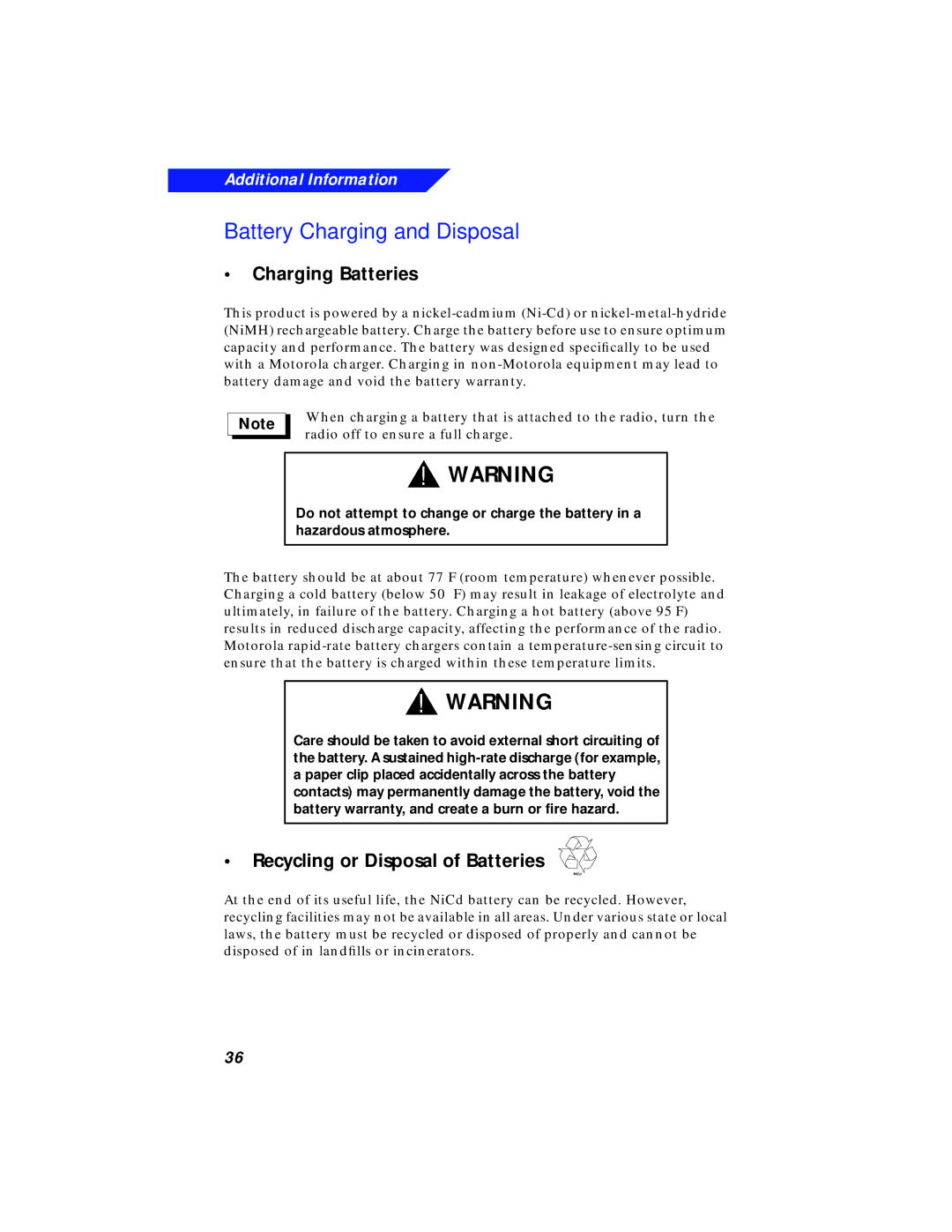
Additional Information
Battery Charging and Disposal
•Charging Batteries
This product is powered by a
Note
When charging a battery that is attached to the radio, turn the radio off to ensure a full charge.
!WARNING
Do not attempt to change or charge the battery in a hazardous atmosphere.
The battery should be at about 77°F (room temperature) whenever possible. Charging a cold battery (below 50° F) may result in leakage of electrolyte and ultimately, in failure of the battery. Charging a hot battery (above 95°F) results in reduced discharge capacity, affecting the performance of the radio. Motorola
!WARNING
Care should be taken to avoid external short circuiting of the battery. A sustained
•Recycling or Disposal of Batteries
NiCd
At the end of its useful life, the NiCd battery can be recycled. However, recycling facilities may not be available in all areas. Under various state or local laws, the battery must be recycled or disposed of properly and cannot be disposed of in landfills or incinerators.
36
